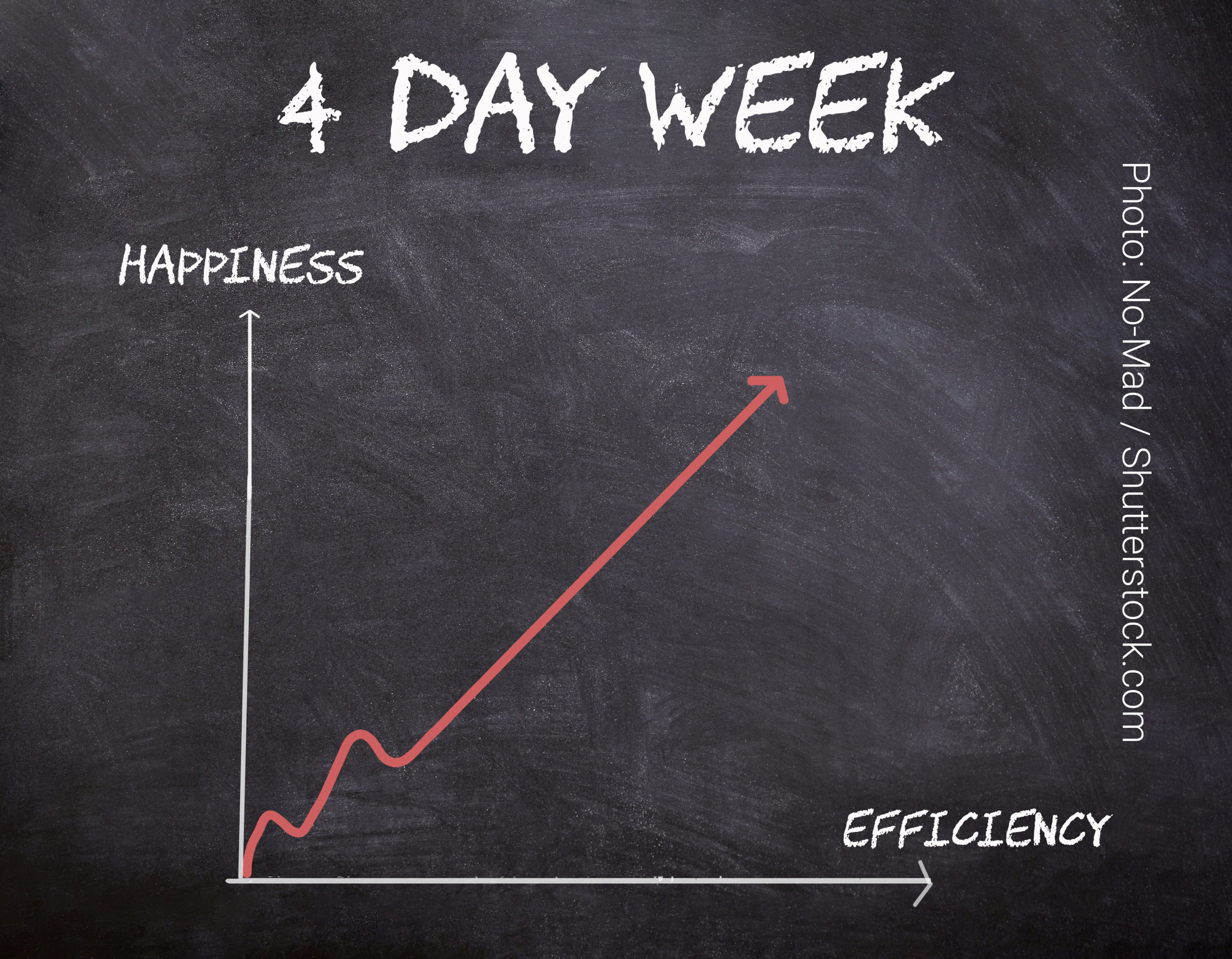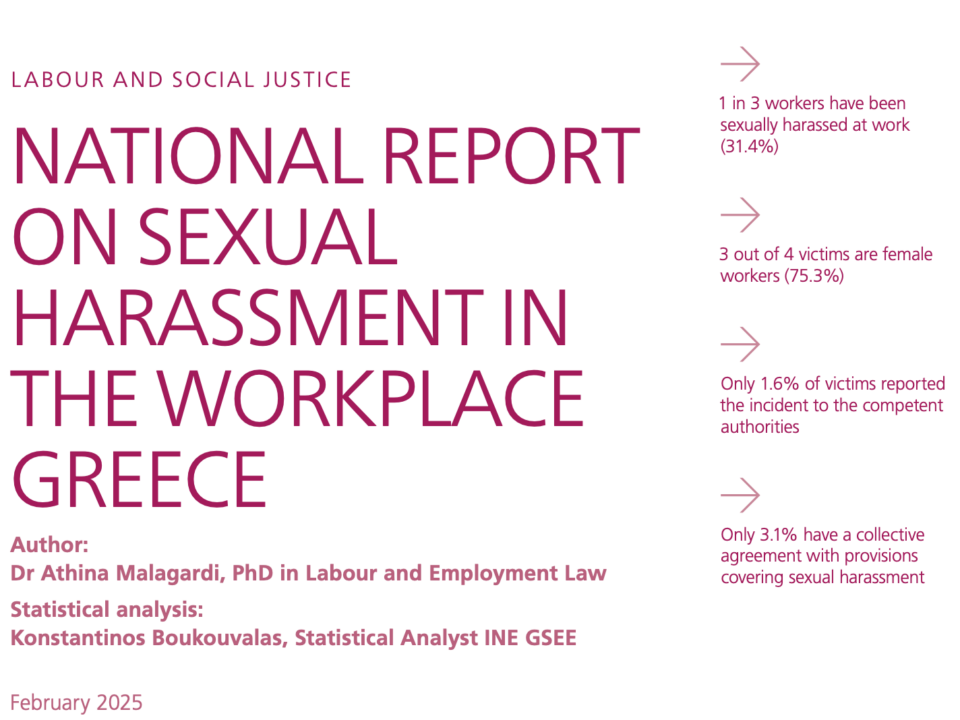Introduction
When the British economist John Maynard Keynes predicted in 1930 that advancements in technology and productivity would make a 15-hour work week possible within a century, he could hardly have imagined the kind of progress we’ve experienced since then. Despite this, working hours have remained largely stagnant in most advanced western economies, during a period when overall economic productivity has exploded.
At 4 Day Week Global, it’s our ambition is to make a 4 day week the new default and reduced working time the new standard. We want to lead and grow the global movement for a shorter working week to make this a reality all over the world and ensure that the benefits and productivity gains brought about by the ‘fourth industrial revolution’ of automation, artificial intelligence and digital technologies are shared with workers.
100:80:100™
The 4 day week we advocate for is very much a flexible model, not a rigid, ‘one size fits all approach’. It’s based on the general principle of the 100:80:100™ model, pioneered by myself and our co-founder Andrew Barnes in the landmark Perpetual Guardian trial in New Zealand in 2018. That’s 100% of the pay, for 80% of the time, in exchange for 100% of the output.
Some companies will choose the traditional 32-hour/4 day week with a set day off; some may adjust rosters and shifts to achieve the same level of coverage and service throughout the workweek; and for some businesses, it might mean five shorter days. But almost all companies that move to a 4 day week do three big things: radically shorten and reform meetings; use technology more thoughtfully and mindfully; and redesign the workday to build in distinct periods for focused work, meetings and social time.
Studies show that the average worker actually loses two to three hours each day to useless meetings, poor technology implementations, and just plain old distractions. So the 4 day week is actually already here, we just can’t see it because it’s buried underneath these outdated practices.
Pilot programmes
In 2022, 4 Day Week Global guided approximately 200 organisations through our six-month coordinated pilot programme in countries including Ireland, the UK, the US, Canada, Australia and New Zealand, with more phases planned this coming year. The purpose of these trials is to equip companies with the knowledge and resources to make the permanent transition to reduced-hour, output-focused working.
We developed a package of supports for employers that provides them with access to the expertise, tools and resources they need to run a smooth and successful trial. These include a specialised training programme, mentorship and networking opportunities.
Leading scholars then work with each company to define and establish their research baseline and relevant productivity metrics for the trial. The economic, social and ecological impact of the 4 day week is also monitored throughout, assessing productivity, employee wellbeing, and gender and environmental impacts, both through direct carbon emissions and indirect behavioural changes.
Outcomes
As these pilots were launched in rounds, we currently just have outcomes from the first phase which largely consisted of companies based in Ireland and the United States. 27 of the 33 participating organisations completed all relevant surveys and so, the findings are based on that figure.
The research revealed that companies experienced increased revenue alongside reduced absenteeism and resignations, while workers felt less stressed and burnt out, and reported higher rates of life satisfaction. Findings also showed significant declines in the duration and frequency of commuting, plus other positive environmental outcomes, with none of the participating organisations returning to a five-day week.
Companies rated the trial a 9.0 out of 10, expressing extreme satisfaction with their overall productivity and performance. Revenue increased by more than a percentage point each month, with a total rise of 8% during the trial. When compared to the same six months in 2021, it rose by 38%.
Employees also rated the pilot highly, with 97% saying they want to continue on a 4 day week. When asked about the monetary value of their extra day off, 70% said their next job would need to offer between 10 to 50% more pay for them to return to a five-day schedule, with over one in ten saying no amount of money could make them go back.
The health and well-being of participants was boosted, with a marked reduction in stress levels, burnout, fatigue and work-family conflict. There were also improvements to physical and mental health, alongside satisfaction across multiple domains of life which may be linked to people getting better sleep and more exercise.
Importantly, participants did not experience an increase in the intensity of work. This suggests that the training provided to companies to help them re-organise their strategies was successful, and worker output was not achieved via speedup.
Going forward
While the greatest momentum behind the 4 day week is in traditionally office-based sectors like finance, IT, software and professional services, we see examples of where the shorter work week has also worked in areas like manufacturing, retail and hospitality. In the aforementioned report, the largest group was from the administrative, IT, and telecoms sector, the second being professional services, with non-profits emerging as the third largest cohort.
For some, the 4 day week will require a greater degree of innovation and flexibility. However, we believe a version of this can work in every sector right across the economy. In any gradual transition, there are going to be early adaptors and some industries are more likely to move to a 4 day week sooner than others. It then becomes a case of competition between industries, as opposed to competition between individual businesses and if sectors want to be competitive and attract and retain talent, they will eventually find a way to make the 4 day week work for them until it becomes the widespread norm.
Conclusion
When the 8-hour day was first introduced more than a century ago, many claimed it was an unaffordable luxury, and argued that the economy couldn’t cope. There will always be naysayers, but our research has shown that the 4 day week is possible and as more companies make the transition, that evidence based will only grow.
Ultimately, the key to success is recognising that time invested in work actually matters less than the results produced. The 4 day week has the potential to be a triple-dividend policy, which can simultaneously improve human, economic and ecological well being. It’s been over 100 years since we invented the five-day working week and it’s time for an update.
To read the full report, click here.
To learn more, visit 4dayweek.com and follow our socials.

-
 Charlotte Lockhart
Charlotte Lockhart
Charlotte Lockhart, 4 Day Week Global Co-founder and Acting CEO




